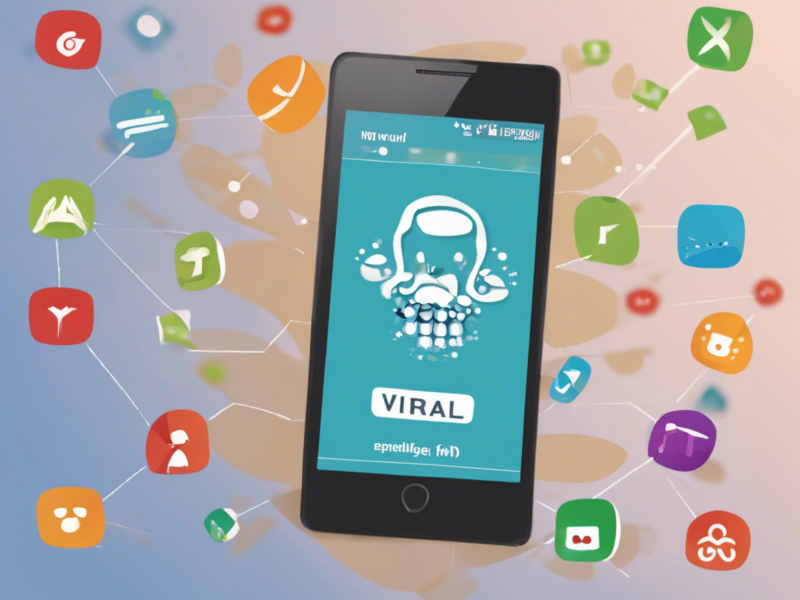In today’s digital age, the internet has become an integral part of our lives, offering convenience, connectivity, and information at our fingertips. However, along with the countless benefits that the online world provides, there are also numerous threats and risks that users need to be aware of and safeguard themselves against. One such prevalent threat is viral MMS download scams, which can wreak havoc on your devices and compromise your privacy and security.
Understanding Viral MMS Download Scams
Multimedia Messaging Service (MMS) is a technology that allows users to send multimedia content such as images, videos, and audio files through text messages. Viral MMS download scams often involve receiving a text message containing a link or attachment that appears to be innocuous but actually contains malware, spyware, or other malicious software. Once the link is clicked or the attachment is downloaded, the scam can unleash a host of problems, including:
- Identity theft: Malware from MMS scams can steal personal information such as passwords, credit card details, and social security numbers.
- Data loss: Viruses can corrupt files, delete data, or even render your device inoperable.
- Financial fraud: Scammers can use malware to access your financial accounts and make unauthorized transactions.
- Privacy invasion: Spyware can track your online activities, intercept communications, and monitor your location.
Recognizing Viral MMS Download Scams
To protect yourself from falling victim to viral MMS download scams, it is crucial to be able to recognize the red flags and warning signs. Here are some common characteristics of MMS scams to watch out for:
- Unsolicited messages: Be wary of MMS messages from unknown senders or numbers.
- Urgent or alarming content: Scammers often use fear tactics to prompt you to click on links or download attachments.
- Poor grammar or spelling: Many scam messages contain typos, grammatical errors, or odd language usage.
- Requests for personal information: Legitimate sources will never ask you to provide sensitive information via text message.
- Too good to be true offers: Scammers may lure you with promises of free gifts, prizes, or exclusive deals.
Staying Safe Online
To stay safe from viral MMS download scams and other online threats, follow these best practices:
1. Think Before You Click
Exercise caution when clicking on links or downloading attachments, especially from unknown sources or unsolicited messages. When in doubt, verify the sender’s identity or contact them through a different channel to confirm the legitimacy of the message.
2. Keep Your Software Updated
Regularly update your operating system, applications, and antivirus software to patch security vulnerabilities and defend against the latest threats. Enable automatic updates whenever possible to ensure you are always protected.
3. Enable Two-Factor Authentication
Enhance your account security by enabling two-factor authentication whenever it is available. This adds an extra layer of protection by requiring a second form of verification, such as a code sent to your phone, in addition to your password.
4. Educate Yourself and Others
Stay informed about the latest online scams and educate your friends, family, and colleagues about best practices for staying safe online. Awareness is key to preventing cyber threats and protecting your digital assets.
5. Backup Your Data
Regularly back up your important files and data to an external hard drive, cloud storage service, or another device. In the event of a malware infection or data loss, you can restore your information from the backup without falling victim to ransom demands.
6. Report Suspicious Activity
If you receive a suspicious MMS message or encounter any online activity that seems fraudulent, report it to your mobile carrier, internet service provider, or relevant authorities. By reporting scams, you can help protect yourself and others from falling prey to cybercriminals.
Frequently Asked Questions (FAQs)
1. What should I do if I receive a suspicious MMS message?
If you receive a suspicious MMS message from an unknown sender, do not click on any links or download any attachments. Delete the message immediately and block the sender’s number to prevent further communications.
2. Can my device be infected with malware just by opening an MMS message?
While simply opening an MMS message is unlikely to infect your device with malware, clicking on links or downloading attachments within the message can pose a significant risk. Exercise caution and avoid engaging with suspicious MMS content.
3. How can I differentiate between a legitimate and a fraudulent MMS message?
Legitimate MMS messages typically come from known contacts, businesses, or service providers and do not request sensitive information or prompt immediate action. Fraudulent messages, on the other hand, often contain urgent requests, suspicious links, or grammatical errors.
4. Is antivirus software effective in protecting against MMS scams?
Antivirus software can help protect your device from malware and other online threats, including those spread through MMS scams. However, it is essential to keep your antivirus program updated and combine it with safe browsing practices for comprehensive protection.
5. What should I do if I accidentally clicked on a suspicious MMS link or downloaded an attachment?
If you suspect that you have fallen victim to a viral MMS download scam, disconnect your device from the internet, run a full antivirus scan, and delete any suspicious files or programs. Consider resetting your device to factory settings if the malware persists.
In conclusion, staying safe online requires vigilance, knowledge, and proactive measures to protect your digital presence from malicious actors and fraudulent schemes. By understanding the risks posed by viral MMS download scams, recognizing red flags, and implementing best practices for online security, you can minimize the threat of cyber threats and safeguard your personal information and devices. Remember, when in doubt, err on the side of caution, and always prioritize your digital safety above all else.

